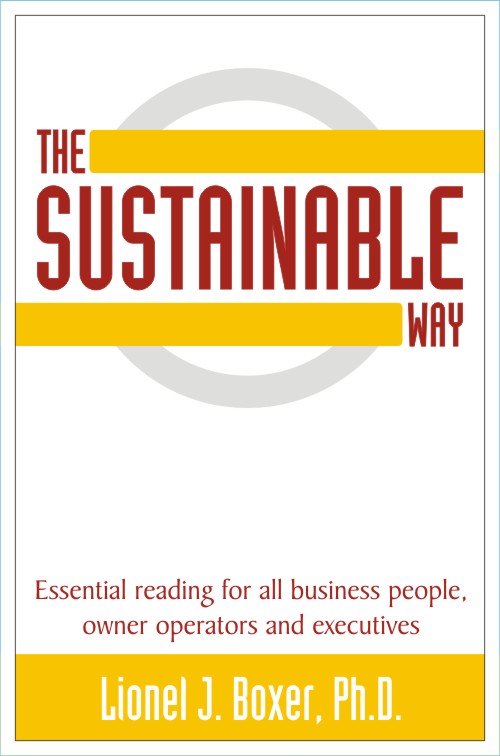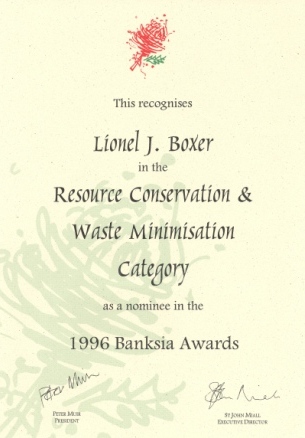
using TQM to reduce environmental pollution
Environmental pollution has escalated so rapidly in recent years that many scientists now believe that planet earth is a dying organism. How we husband our resources in what remains of the 20th century, they say, will determine whether life goes on, or whether our world becomes just another sterile chunk of rock, aimlessly orbiting the sun. One glimmer of hope is that public opinion, motivated by sheer necessity, has forced industry to reduce the level of toxic emissions from factories. It has also led to the introduction of anti-pollution laws making it a criminal offence to operate manufacturing processes that foul the environment. Environmental audits, which are conducted to identify environmentally unfriendly processes, have become commonplace. Total Quality Management (TQM) plays an important role by doing something about reducing foul emissions once they have been identified. In one Australian instance of TQM implementation, factory workers decided to monitor procedures involving application of a chemical resin. This study revealed that major variations occurred from time to time in a certain process, which led to instability in the chemical mix, thereby triggering excessive toxic emissions. The process was not in statistical control. The erroneous procedures were identified, recorded and eliminated, which put an end to the problem. In doing so, the TQM team also put an end to the five year dispute between management and the Environmental Protection Authority (EPA), which had threatened to close the plant. Curiously, the factory concerned was not aware of the full extent of its success until a supplier of chemicals approached the plant's purchasing officer to ascertain why orders had fallen by 25 percent in a six-month period. 'Where are you getting your chemicals from?, inquired the salesman, 'we are supposed to be the only supplier.' When the records were reviewed by management, it became evident that output had increased significantly in the same six-month period. Mutual confusion reigned until one bright spark recalled that the EPA inspector had not been around for some time. Acting on a hunch, the plant manager phoned the EPA. 'No need to visit you these days,' was the cheerful response, 'we consider your problem solved.' Suddenly it all came together. The plant was using 25 percent less chemicals, had boosted output, reduced scrap, and was saving money - specifically $200,000 per year. Better still, toxic emissions had been reduced to insignificant levels, and environment-threatening scrap from the process was down from several truckloads a week to a few bags. TQM training, employee participation, training materials, and associated costs were less than $35,000. It is worth pondering the following: producing by-products in the course of producing good products is understandable, but producing by-products as a result of producing garbage is stupid. People who permit this sort of thing to occur deserve the wrath of the environmental authorities. There are factories is and around Melbourne which produce hundreds of thousands of dollars' worth of finished products each year that are nothing but scrap. Why? Because earlier processes in the manufacturing cycle are incapable of producing components in tolerance. Sometimes these parts are even chrome plated, but if they do not meet customers' requirements they are still junk. One process studied recently was producing 25 percent scrap parts - that is 25 out of every 100 units produced were being thrown out because the wrong cutting tool and cutting fluids were used. By implementing changes costing less that $1,000 this manufacturing enterprise saved $50,000 in one year - almost twice the consulting fees to establish a quality system, gain Q101 quality accreditation, and pay for training 30 percent of the staff in TQM methodologies. TQM is simple to implement if people have a genuine desire to do so. TQM rejuvenates a business more effectively that any other method, because it produces results, which maintain competitiveness and ensures health and job securing. Any and all change is based on reliable information. It is difficult, indeed, to understand why some people decline to implement TQM. Perhaps they are afraid of being caught out doing so many things the wrong way! But for those who are brave enough to discover how and why things go wrong, admit past errors, and accept the challenge to improve imperfect processes and practices, no praise is too high. They are not merely enhancing profitability, they are waging a way on pollution; and nothing is more important than protecting the world in which we live, and hope to bequeath to our children. Have a look at my book, |


